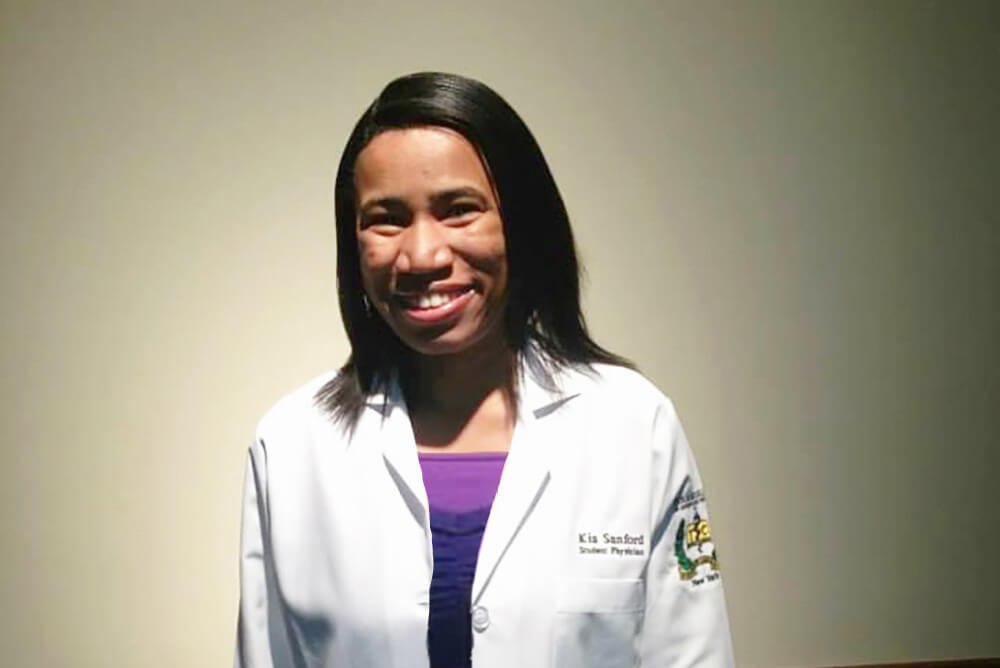Worth Saving
A Pediatrician Whose Heart Was Made to Save Abused Kids

As a child, Kia Sanford convinced her mom to take her to the pediatrician frequently. “I would pretend to be sick and not getting better,” she recalls. “Once at the office, I’d say ‘Oh, I’m feeling better now,’ and ask the pediatrician for gloves, test tubes, tongue depressors and all kinds of doctor stuff. I scored every time. Eventually, my mother figured out my scam.”
Swell swag aside, Sanford never recalls a time when she didn’t want to become a doctor, specifically a pediatrician. “Good thing, because pediatrics was my last rotation in med school and I hated everything that came before it,” she says, laughing. “But I loved pediatrics even more than I knew I would as a little girl.”
A 2015 graduate of Touro College of Osteopathic Medicine, Sanford has begun the first year of a prestigious three-year fellowship at the University of Florida, Jacksonville, Department of Pediatrics, Division of Child Protection and Forensic Pediatrics. “Basically, I’m a child abuse pediatrics fellow,” explains Sanford, 35. “I hope to incorporate my eventual practice being able to identify and stop child abuse cases and collect the evidence to be an expert witness on behalf of the children; that’s the forensics portion. The other part of my practice will be as a regular pediatrician, one who sees healthy and loved children. I want and need both.”
Her determination began after seeing far too many hurt babies and children during her residency. In particular, one little boy with head trauma shredded her heart. “His case had been closed twice and he was sent back home,” she says. “His stepfather killed him. That was it. If I can do something to stop this from happening again, that’s what I will do.”
Sanford was reared in Sacramento, California, by her mother. She was 15 when her mother died. She went to live with her father. In her first year of medical school, Sanford suffered a bout of depression that forced her to leave school. Once she regained her health, Touro administrators, professors and her fellow students welcomed her back with open arms. “I got good grades, worked hard, excelled,” she says. “I remember, at my graduation, my dean looked at me and said, ‘You are why I’m so glad we give people second chances.’ I will never forget that moment.”
She remains incredibly grateful to Touro, not simply for the excellent professors and hands-on experience at top-notch hospitals and labs, but for the deep compassion she was shown.
These days, Sanford focuses on data collection to prove abuse in court, as well as identifying what’s going on when a baby or child is in her care, early enough for her young patients to survive and thrive. “The primary care pediatrician is the gatekeeper,” she says. “I can do damage control, step in, help and get courts and therapists and others to help. There are happy endings, I promise. But I want the bad endings to become fewer and fewer and fewer.”
To keep herself healthy and optimistic, Sanford takes dance classes, fast, fast, rhythmic, ecstatic, Latin dancing, that raises her spirits and her heart rate. She also hangs out with her two dogs (“my children”). “It takes heart to do this work,” she says. “Not everyone has it. But that’s okay, because I have it and it’s the work I want and was meant to do.”

